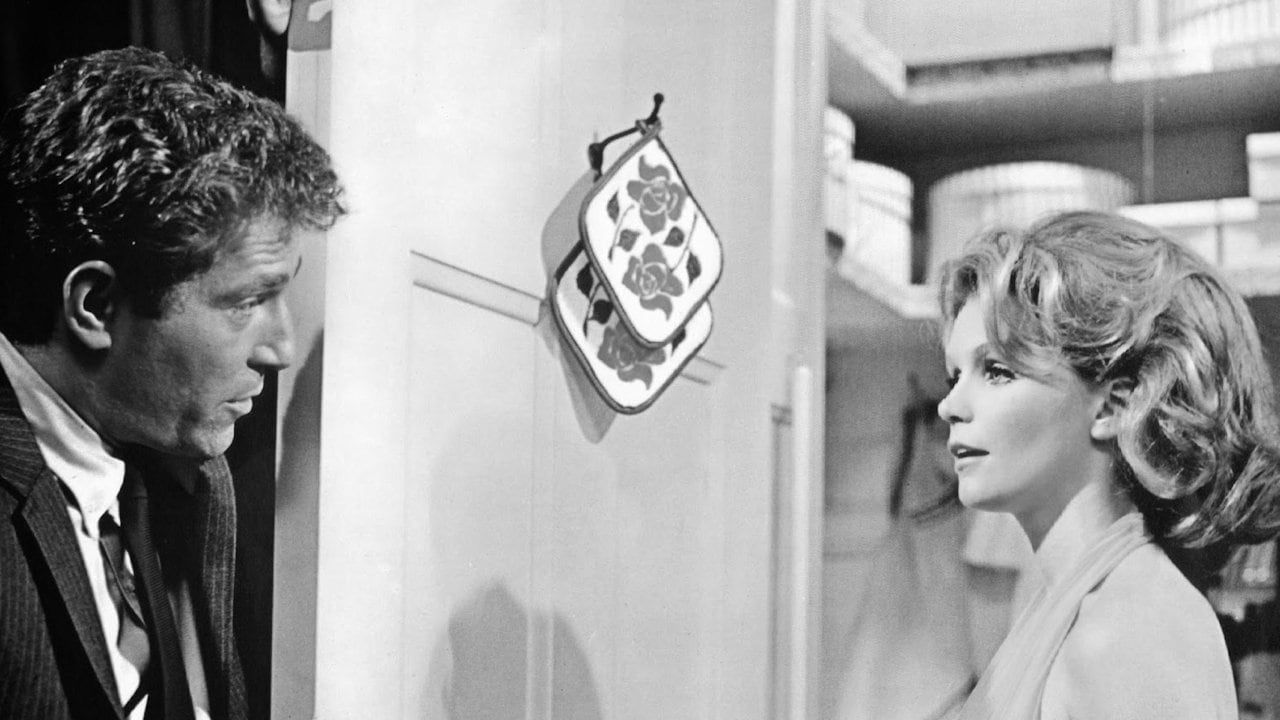Inclubabu
Plot so thin, it passes unnoticed.
Blucher
One of the worst movies I've ever seen
Clarissa Mora
The tone of this movie is interesting -- the stakes are both dramatic and high, but it's balanced with a lot of fun, tongue and cheek dialogue.
Dana
An old-fashioned movie made with new-fashioned finesse.
classicsoncall
Rod Steiger makes for an effective serial killer in this late Sixties flick, described by a police detective later in the story as displaying a 'paranoiac exhibition of mother hate'. I thought Morris Brummel's (George Segal) sixth victim ruse was pretty clever in getting the maniac to go off his stride and set himself up for capture. However in the one scene at the bar in which the disguised-as-a-woman Gill (Steiger) was picked up by the buxom saloon gal - what was Brummel's rationale in following them to the apartment next door? There wasn't any logical reason to my mind why he should have suspected anything was up with those two, even after questioning the bartender. That one didn't make sense to me.Though never mentioned by name, I thought the reference to Christopher Gill's Oedipus complex was cleverly referred to in the museum scene with the statue of Oedipus and Antigone. The story didn't delve into Gill's background very effectively otherwise, the fact that he had inherited the family theater business didn't add much to explaining his murderous tendencies. The cops did a better job of bringing him out with planted stories of his being a sexual pervert, and of course that sixth victim business.Keeping an eye on the street scenes during the race to Kate Palmer's (Lee Remick) apartment, I caught two marquees displaying the titles "The Born Losers" and "Pink Pussy". The first picture was a Tom Laughlin/Billy Jack movie, but I was pretty sure I wouldn't get an IMDb hit for the second. But lo and behold, it turns out that it was a 1964 Venezuelan film with New York City scenes added a couple years later for an American release. So the timing in this movie worked I guess. If you take a quick look, there's even a single review for the picture, which is probably all you need, since getting a hold of the flick is probably impossible.Anyway, this was an okay thriller that could only have gone one way in the resolution, so you had to get some entertainment value out of the handful of humorous scenes offered. The Kupperman (Michael Dunn) confession was a sketch, but the scene that just killed was when Kate Palmer met Brummel's Jewish mother and deadpanned her way through an entire critique of Mrs. Brummel's (Eileen Heckart) 'other son Morris' - "With a son like Franklin, you don't mind having this one so much"!
sol-
Taunted by phone calls from a serial killer who dons a different disguise every time he kills, a New York detective struggles to get an upper hand in this odd 'Boston Strangler' variant with comedic touches. As the murderer in question, Rod Steiger delivers a terrific performance, preying on the insecurities of his female victims whilst remaining completing in character until he has won their trust and has the opportunity to strike. George Segal is also fine as the baffled detective and the film gets very riveting in the final quarter as Segal finds ways himself to play mind games with Steiger and prod him into inadvertently revealing personal details. While solid as a thriller, the movie is uneven as a comedy. Eileen Heckart is irritatingly shrill as Segal's henpecking mother, and while there is something to be said for how her pestering is just as annoying for Segal as the killer's taunts, the exchanges between Heckart and Segal are generally unfunny and feel like a distraction from the Steiger main plot. Lee Remick only fares slightly better than Heckart as Segal's love interest and her subplot feels like a distraction too. The film consistently works though when Steiger is in focus with a lot of delicious dark comedy derived from how he manages to constantly con all his victims. His exchanges with Segal (each time affecting a different accent) sparkle too and he has one surefire memorable final scene. The title also has a curious double meaning here; Heckart says in disapproval of Segal inspecting female corpses, but it applies equally to Steiger's take on female companionship.
JasparLamarCrabb
A very stylish thriller directed by Jack Smight from a novel by William Goldman. Rod Steiger (in many many guises) is a strangler preying on elderly women and taunting NYC cop George Segal. Though clearly no mama's boy, Segal lives with his mom (Eileen Heckart, who redefines gumption with her smothering Jewish mother routine) and is smitten with Lee Remick, an enigmatic witness and potential victim. Both Steiger & Segal are perfect. Steiger's performance is staggering as he plays, at various times, an Irish priest, a fop wig salesman, a German plumber (who actually uses the word wonderbar!) and a cop. Shockingly for Steiger he does not ham it up as he would in many future roles (Napoleon, Mussolini). Shot on location with great cinematography by Jack Priestley and exceptional art direction by George Jenkins (note Remick's "mod" apartment). The large supporting cast includes David Doyle, Murray Hamilton, Doris Roberts, Barbara Baxley, Ruth White, Val Bisoglio and Michael Dunn, who claims to be the strangler despite some very obvious limitations. The very effective music score is by Stanley Myers.
inkslayer
When Jewish Detective Mo Brummel (George Segal) isn't hunting down a serial killer (Rod Steiger), Mo's momus mother (the talented Eileen Heckart) is shoving food across the table to him whining, "Eat!"Well-scripted for its time, the story still holds up even today. Nothing is contrived. From the manipulating the newspapers so the police can smoke out their man to the verbal snipe at a homosexual. This was life in the 60s! If you grew up in New York you'll applaud writers Gay and Goldman for capturing the Jewish-ness of their characters. Either you had relatives like the Brummels, or they lived as neighbors in the same building you did, but live they did! New Yorkers will love the city street scenes and recognize many establishments like Sardi's and Merv Griffin's studio next door to it. And Lee Remick's funky 60s pad brings back memories of jaunty women caught up in the "new scene." A little disappointing is Lee Remick's character. Perhaps her character development got left on the cutting-room floor? Mrs. Brummel's conniption's over her son's dating a shiksa is right on, and funny.Steiger is a true master of mental disguise.Segal is the perfect mamma's boy, as well as a hard-working sleuth.A nice balance of humor and drama.A clever way to show off New York.Steiger probably would have won an Oscar for his role in NWtTaL if he hadn't received the Oscar the year before for his role in In the Heat of the Night.

